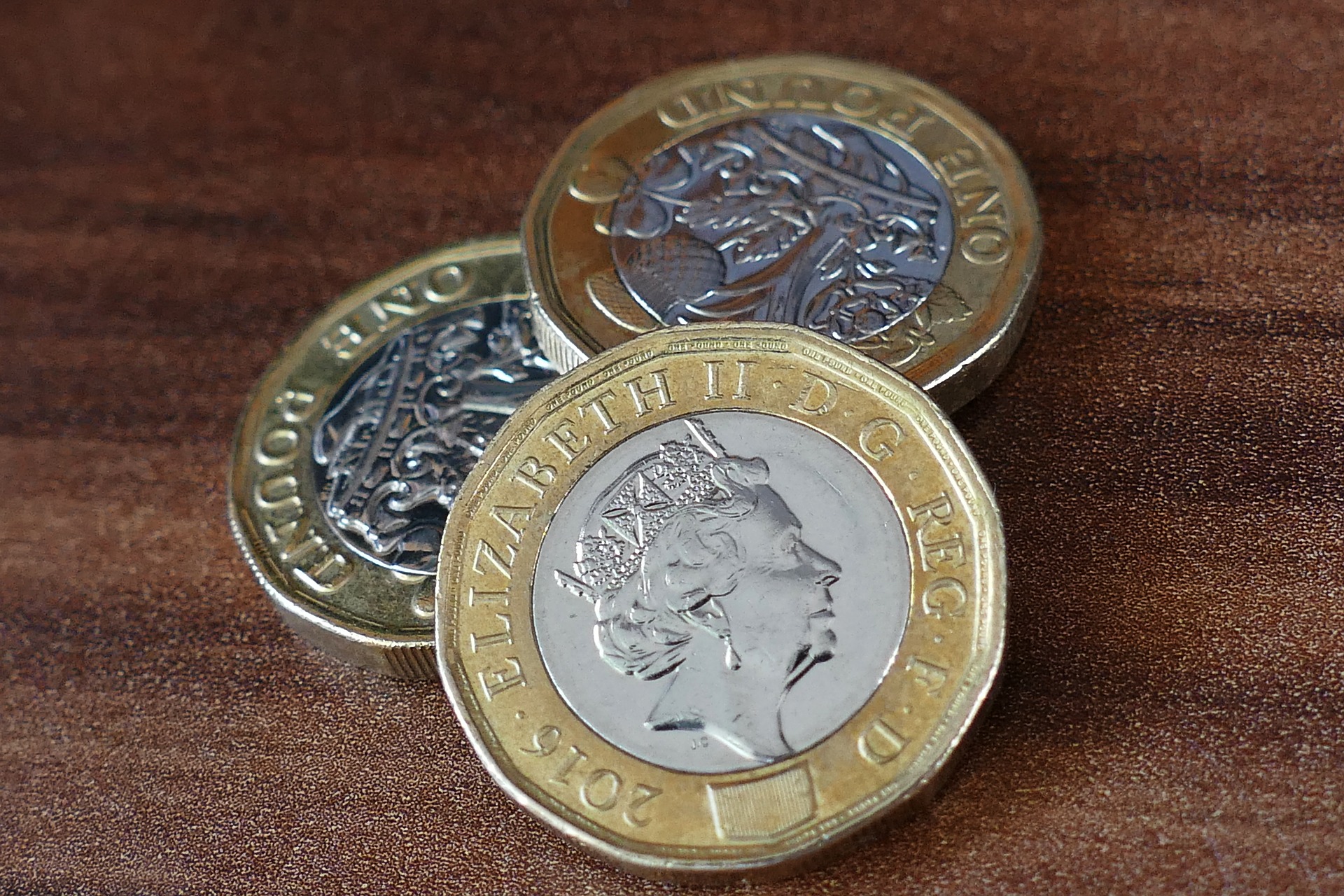British Pound to Dollars closed at 1.3413 for the weekend ending November 12, 2021. GBP/USD trades at the 2021 year lows, at levels last seen in December 2020.

British Pound to Dollars At Year Low Levels
The British Pound to Dollars took support at the 1.3350 levels, as the currency pair saw a sharp decline last week. It is currently trading above the 1.34 area. After three days of trading in the red, the GBP/USD turned positive on Friday.
The RSI does not suggest any upmove in the near future. However, the British Pound to Dollar is moving with a negative trajectory.
Northern Ireland protocol issues and lower GDP are hurting the economy. The British Pound to Dollars has been declining to the 2021 lows. GBP/USD is trading at levels last seen in the last week of December 2020.
British Pounds to Dollars Decline with Lower GDP
UK’s GDP q/q has gone down from 5.5% to 1.3% for the third quarter of 2021. Britain’s GDP is weakening, adding to the down move on the British Pound to Dollars. The UK economy in the third quarter is lower than expected.
But, GDP month on month has gone up from 0.2% to 0.6%. However, it remains below its pandemic level.
Retail sales are at -0.2% year on year in October 2021, from -0.6% in the previous. It is the second month of decline, despite the festive season ahead. Retailers hope that sales will improve ahead of Christmas. Sales in the clothing and footwear sector show improvement, while electrical sales and furniture held back.
The sectors showing improvement are recreation, hospitality, and health. The reopening of the economy and the easing of restrictions brings signs of recovery to the economy.
Construction output increased 7.2% in September 2021 from the same date last year. There were marginal increases in repair and maintenance and new housing.
Goods trade balance widened in September 2021 to 2.8 billion, the largest since January. Imports have gone up, while exports grew at a slower pace.
Industrial production m/m is down from 1.0% to -0.4%. However, year on year, it increased 2.9%. Production has gone up in the mining sector.
Manufacturing production m/m is down from 0.3% to -0.1%. Factory output in September went up 2.8% year on year. Factory output contracted in the transport equipment industry, computer and electronic industries, and textiles to below pre-pandemic levels.
NIESR GDP estimate shows a change from 1.3% to 1.0%.
Bank of England left interest rates unchanged last week. It was a surprise decision by the BoE to keep rates the same. It puts the British Pound to Dollars on a losing streak. Experts predict a rate hike in the BoE meeting next month.
The number of migrants moving to the United Kingdom is increasing. Migrants are moving from France to the UK by boat. It is the largest migration from last year, reveals data.
GBP/EUR Lower as Political Tension Rages On
The Northern Ireland protocol keeps the British Pound to the Dollars on a declining trend. The cable saw a steady decline from the 1.1800 levels against the Euro in the first week of November. It took support at the 1.1650 levels and is now trading at the 1.1710 area. The spat between the two regions threatens the Brexit trade deal.
The UK has intentions of introducing Article 16. The European Union is preparing for a retaliatory attack against Great Britain. Negotiation on the fishing waters issue may bring a revision in talks. Previous talks ended in a failure, and fresh talk may help to resolve the problem. Article 16 will add tension between the two regions.
Political tension between the two regions keeps the Sterling under pressure. Article 16 may trigger a trade war between the EU and the U, K which is detrimental for both regions. Prime Minister Boris Johnson faces immense criticism over the handling of the Northern Ireland protocol. There is dissent even from his own party. Friction between the two regions may damage economic performance and bring in trade disputes.
The British Pound to Euro is declining with political issues brewing in the country.
Furlough Scheme Comes to an End
The Furlough Scheme in the UK supported millions of workers in the region. However, the scheme came to an end last month. It may negatively affect economic growth.
But to the relief of authorities, the withdrawal did not bring a spike in unemployment. Sectors such as health care and heavy goods transport are in need of more workers. People are returning to their previous jobs or returning to full-time work.
More than 11 million benefitted from the furlough scheme, preventing a sharp increase in unemployment in Britain.
US Dollar at Year Highs
Inflation pressure in the US is high. The Federal Reserve will taper quantitative easing at a faster pace, predict analysts. The US inflation data adds pressure on the GBP/USD.
The Fed has put off raising interest rates in the meeting that took place last week. The Fed may raise rates by July 2022.
Gold is trading above the October highs at 1815 amid the Fed’s decision to delay rate hikes.